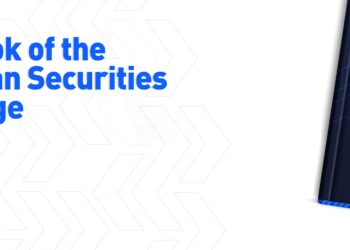In this article, we explore the roles, operations, and licensing procedures of Securities Shariah Advisers, as listed in the Ethiopian Capital Market Authority’s Directive No. 980/2024.
In the evolving landscape of Islamic finance, Securities Shariah Advisers play a pivotal role in ensuring the compliance of financial products and activities with Shariah principles. Their expertise is crucial in maintaining the integrity and growth of the Islamic capital market. Securities Shariah Advisers are professionals or entities that provide guidance and advice on the compliance of financial products, services, and activities with Shariah (Islamic law) principles. Their role is crucial in ensuring that the financial instruments and transactions within Islamic finance adhere to the ethical and legal standards outlined by Shariah.
Providing Shariah Expertise and Advice
One of the primary functions of Securities Shariah Advisers is to offer Shariah expertise and advice on matters related to Islamic capital market products and activities. This encompasses a broad range of responsibilities, including the review of documentation such as deeds and prospectuses, as well as the assessment of the structure, features, and financial instruments involved in these products.
Their role is essential in ensuring that every aspect of an Islamic capital market product is in line with Shariah principles. This includes a thorough examination of the terms and conditions of the financial instruments to certify that they do not involve elements prohibited by Islamic law, such as riba (usury), gharar (excessive uncertainty), and maysir (gambling).
Ensuring Compliance with Shariah Legislations
Securities Shariah Advisers are also tasked with ensuring that all aspects of a security are in accordance with applicable Shariah legislations and directives issued by relevant authorities. This function involves staying updated with the latest Shariah rulings, principles, and concepts endorsed by recognized Shariah bodies, particularly those within Ethiopia, if we consider the local context.
By ensuring compliance, these advisers help maintain the trust of Muslim investors who seek to invest in products that align with their religious beliefs. This trust is foundational to the growth and sustainability of the Islamic capital market.
Application of Ijtihad
The application of ijtihad, or intellectual reasoning, is another crucial function of Securities Shariah Advisers. Ijtihad involves the process of making a legal decision by independent interpretation of the legal sources of Islam. In the context of Islamic finance, this means ensuring that all aspects relating to Islamic capital market securities are in accordance with Shariah principles through careful and reasoned analysis.
This function is particularly important when dealing with new and complex financial instruments that may not have clear precedents in traditional Shariah rulings. By applying ijtihad, Shariah advisers can provide innovative solutions that are both compliant with Islamic law and conducive to market development.
Limitations on Securities Shariah Advisers
While Securities Shariah Advisers have significant responsibilities, there are clear limitations to their roles to avoid conflicts of interest and ensure their independence. Notably, they are prohibited from engaging in the maintenance or management of investors’ funds. This restriction is crucial in maintaining the objectivity and impartiality of the advisers, ensuring that their advice is not influenced by financial interests.
Additionally, Securities Shariah Advisers cannot act as advisers for an entity offering or issuing an Islamic capital market product if they are employees of that entity. This limitation is designed to prevent any potential bias or conflict of interest that could arise from an adviser’s dual role within the same organization.
A business organization that has been granted a Securities Shariah Adviser License by the Authority, in accordance with this Directive, must also comply with the provisions listed below. Additionally, the organization is required to have a Securities Shariah Officer, who is licensed by the Authority, serving as an Appointed Representative.
Except as otherwise stated in the Directive, a business organization, other than a general partnership, limited partnership, limited liability partnership, or one-person private limited company, which has been issued a Services License to operate as a Capital Market Service Provider, must comply with the minimum operating requirements of its Self-Regulatory Organization. At a minimum, it must have three Appointed Representatives, including:
- Chief Compliance Officer
- General Manager/Chief Executive Officer
- Any other personnel as specified in this Directive or any other Directives issued by the Authority.
A general partnership, limited partnership, limited liability partnership, or one-person private limited company that has been issued a Services License to operate as a Capital Market Service Provider must also comply with the minimum operating requirements of its Self-Regulatory Organization. At a minimum, it must have two Appointed Representatives, including:
- General Manager, in accordance with the Commercial Code of Ethiopia Proclamation No. 1243/2021
- Chief Compliance Officer.
Furthermore, every Capital Market Service Provider that is a share company or a private limited company must have a Board of Directors responsible for governance and comply with the provisions of the Directive on Corporate Governance for Capital Market Service Providers. So these requirements are needed with Securities Shariah Advisers.
Regarding the fee requirements from the Authority, individual Securities Shariah Advisers are required to pay 60,000 ETB, whereas corporate-level firms are required to pay 240,000 ETB.
In conclusion, Securities Shariah Advisers are indispensable to the Islamic capital market, providing essential expertise and ensuring that financial products and activities comply with Shariah principles. Their roles encompass offering Shariah advice, ensuring legislative compliance, and applying intellectual reasoning through ijtihad. However, to maintain their objectivity and integrity, they must adhere to strict limitations that prevent conflicts of interest. As the Islamic finance industry continues to grow, the importance of these advisers will only increase, underscoring their critical role in fostering a trustworthy and compliant market environment.






















